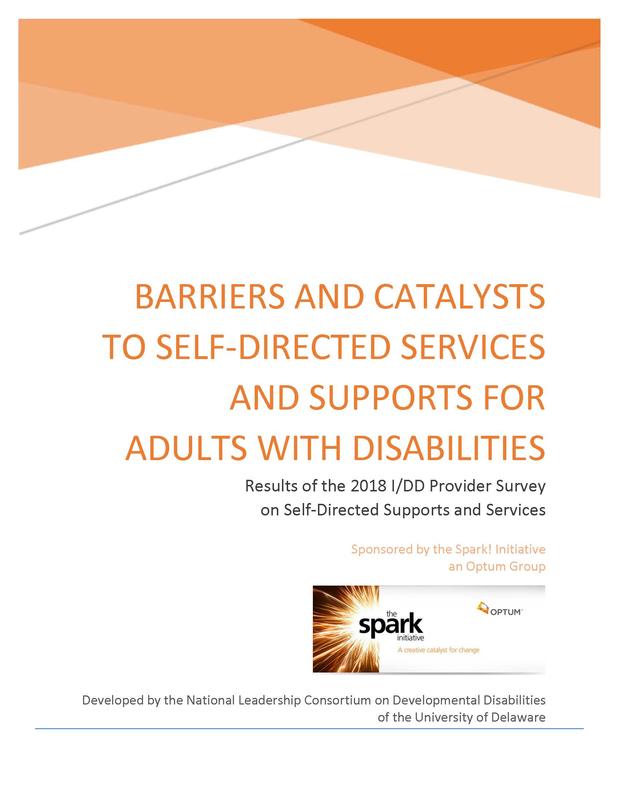NYS Conference of Local Mental Hygiene Directors, Inc. | An Affiliate of the New York State Association of Counties >
Hot Topics / Priority Issues
National Provider Survey Report with Executive Summary on Self-Determination for Persons with IDD
 Agencies providing services to adults with intellectual and developmental disabilities (I/DD) are undergoing a decades long shift from congregated approaches toward community-based, integrated, and person-centered supports. This transformation in service delivery models has been propelled by the self-determination movement, which advocates for people with I/DD have the right to control every aspect of their lives and live with dignity. Such advocacy has influenced federal policy and allocation of funds for self-directed services through Home and Community-Based Services Medicaid waivers, which are becoming more widely utilized.
Agencies providing services to adults with intellectual and developmental disabilities (I/DD) are undergoing a decades long shift from congregated approaches toward community-based, integrated, and person-centered supports. This transformation in service delivery models has been propelled by the self-determination movement, which advocates for people with I/DD have the right to control every aspect of their lives and live with dignity. Such advocacy has influenced federal policy and allocation of funds for self-directed services through Home and Community-Based Services Medicaid waivers, which are becoming more widely utilized.
When self-directing their services, adults with I/DD exercise employer and budget authority, sometimes with the assistance from a family member, support broker, counselor, and/or a fiscal intermediary. This transfer of control from case managers, service providers, or state employees to the person with I/DD has many provider agencies struggling to adjust their services due to an array of systemic, economic, political and attitudinal barriers. Better understanding of how service agencies are navigating this shift will assist in the transition and ensure appropriate service delivery.
The IDD Provider Survey on Self-Directed Services and Supports Report investigated how providers are currently supporting adults to lead self-directed lives, and the barriers and catalysts to such supports. Responses from 475 professionals working at all levels of service provider agencies across the nation point to agency, community, and systemic factors that are hindering and helping the process of providing self-directed supports.



